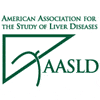 Twelve or 18 weeks of Merck’s fixed-dose combination therapy of grazoprevir/elbasvir (MK-5172/MK-8742, MK-5172A), with or without ribavirin, cured 91 to 100 percent of hard-to-treat people with genotype 1 of hepatitis C virus (HCV). Meanwhile, 12 weeks of the combination pill, with or without ribavirin, cured 87 percent to 98 percent of non-cirrhotic, treatment-naive people with genotype 1 of the virus, some of whom were coinfected with HIV and some of whom weren’t. Eight weeks of treatment plus ribavirin among participants monoinfected with HCV genotype 1a had a cure rate of 80 percent.
Twelve or 18 weeks of Merck’s fixed-dose combination therapy of grazoprevir/elbasvir (MK-5172/MK-8742, MK-5172A), with or without ribavirin, cured 91 to 100 percent of hard-to-treat people with genotype 1 of hepatitis C virus (HCV). Meanwhile, 12 weeks of the combination pill, with or without ribavirin, cured 87 percent to 98 percent of non-cirrhotic, treatment-naive people with genotype 1 of the virus, some of whom were coinfected with HIV and some of whom weren’t. Eight weeks of treatment plus ribavirin among participants monoinfected with HCV genotype 1a had a cure rate of 80 percent.
Researchers presented these results from the Phase II C-WORTHy trial at the Annual Meeting of the American Association for the Study of Liver Diseases (AASLD) in Boston. In addition, two papers about the trial were published in The Lancet. C-WORTHy is a randomized, dose response, parallel-group, multiple-site, double-blind clinical trial comparing the responses of various HCV-positive populations to treatment with grazoprevir/elbasvir, with or without ribavirin. A total of 471 participants were randomized across 16 arms of the study.
Among treatment-naive participants with cirrhosis who took the combination pill plus ribavirin, 90 percent (30 out of 31) of those on therapy for 12 weeks achieved a sustained virologic response 12 weeks after completing therapy (SVR12, considered a cure), and 94 percent (29/31) of those took the treatment for 18 weeks were cured. Among the treatment-naive people with cirrhosis who did not take ribavirin, those who were treated for 12 weeks had a 90 percent (28/31) cure rate, and those who were treated for 18 weeks had a 94 percent (29/31) cure rate.
Among the participants previously treated with interferon and ribavirin, a group which included people with and without cirrhosis, 94 percent (30/32) of those who took ribavirin with grazoprevir/elbasvir in C-WORTHy and were treated for 12 weeks achieved an SVR12, and 97 percent (31/32) of those treated with this regimen for 18 weeks were cured. Among those who only took grazoprevir/elbasvir, 91 percent (30/33) were cured after 12 weeks and 97 percent (31/32) were cured after 18 weeks.
The treatment was generally well tolerated. The most common adverse side effects of the regimen, with or without ribavirin, were fatigue (26 percent), headache (23 percent) and asthenia (14 percent), which is weakness and lack of energy or strength.
Among the non-cirrhotic, treatment-naive people with genotype 1 of the virus, who either were or were not coinfected with HIV and who were treated with or without ribavirin for 12 weeks, the results were as follows: Ninety-seven percent (28/29) of the coinfected participants who took ribavirin were cured, compared with 87 percent (26/30) of those who did not take ribavirin. Ninety-three percent (79/85) of the HCV monoinfected participants who took ribavirin were cured, compared with 98 percent (43/44) of those who did not take ribavirin. In a group of HCV monoinfected participants with genotype 1a of the virus who took the regimen with ribavirin for eight weeks, 80 percent (24/30) were cured. Out of this group, one person was lost to follow-up. The virologic failure rate in the eight-week group was 17 percent, with five participants relapsing.
The most common adverse side effects, with or without ribavirin, in this group were fatigue (23 percent), headache (20 percent), nausea (15 percent) and diarrhea (10 percent).
“Merck is committed to developing an efficacious, well-tolerated therapy suitable for a broad spectrum of patients with HCV,” Eliav Barr, MD, vice president of infectious diseases at Merck Research Laboratories, said in a press release. “We are encouraged by the findings for grazoprevir/elbasvir in the C-WORTHy trial and look forward to advancing our broad Phase 3 program, which includes hard-to-cure patients that are of the highest need and least studied to date.”
To read the press release, click here.
Advertisement
Advertisement
Advertisement






1 Comment
1 Comment